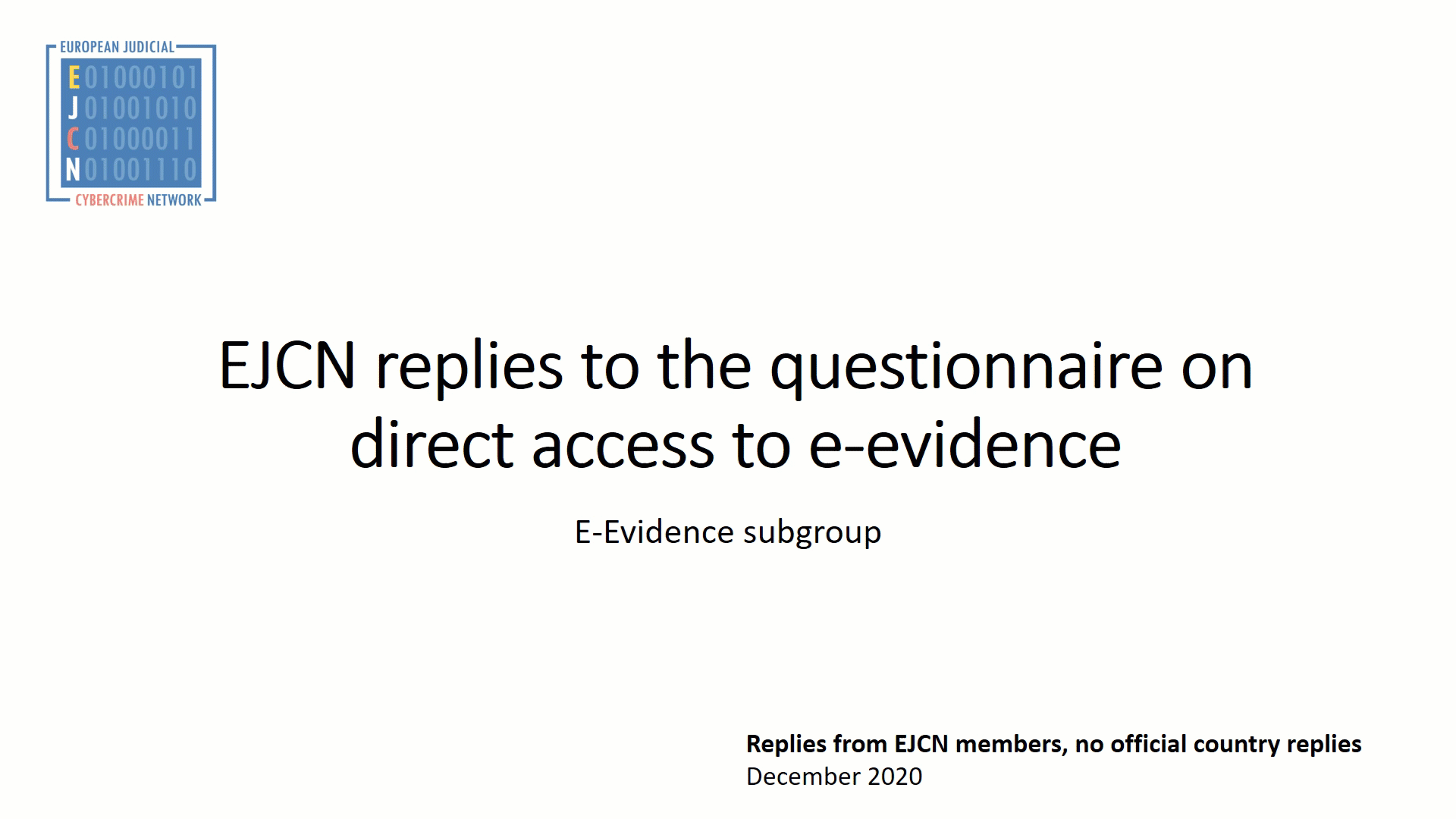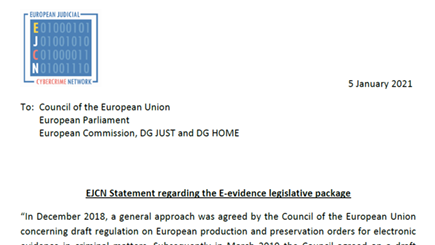
The European Judicial Cybercrime Network (EJCN) was established in 2016 to foster contacts between practitioners specialised in countering the challenges posed by cybercrime, cyber-enabled crime and investigations in cyberspace, and to increase the efficiency of investigations and prosecutions.
The EJCN facilitates and enhances cooperation between competent judicial authorities by enabling the exchange of expertise, best practice and other relevant knowledge regarding the investigation and prosecution of cybercrime.
Eurojust is a key partner of the EJCN, especially in situations in which the Network deals with the numerous challenges related to the genuinely borderless nature of cybercrime. In addition, Eurojust hosts the regular meetings of the network, and supports the exchange of information between the EJCN’s members and other stakeholders that play a role in ensuring the rule of law in cyberspace.



